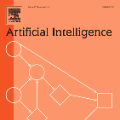The increasing complexity of software systems and the sophistication of cyber-attacks have underscored the critical need for effective automated vulnerability detection and repair systems. Data-driven approaches using deep learning models show promise but critically depend on the availability of large, accurately labeled datasets. Yet existing datasets either suffer from noisy labels, limited range of vulnerabilities, or fail to reflect vulnerabilities as they occur in real-world software. This also limits large-scale benchmarking of such solutions. Automated vulnerability injection provides a way to directly address these dataset limitations, but existing techniques remain limited in coverage, contextual fidelity, or injection success rates. In this paper, we present AVIATOR, the first AI-agentic vulnerability injection workflow. It automatically injects realistic, category-specific vulnerabilities for high-fidelity, diverse, large-scale vulnerability dataset generation. Unlike prior monolithic approaches, AVIATOR orchestrates specialized AI agents, function agents and traditional code analysis tools that replicate expert reasoning. It combines semantic analysis, injection synthesis enhanced with LoRA-based fine-tuning and Retrieval-Augmented Generation, as well as post-injection validation via static analysis and LLM-based discriminators. This modular decomposition allows specialized agents to focus on distinct tasks, improving robustness of injection and reducing error propagation across the workflow. Evaluations across three distinct benchmarks demonstrate that AVIATOR achieves 91%-95% injection success rates, significantly surpassing existing automated dataset generation techniques in both accuracy and scope of software vulnerabilities.
翻译:暂无翻译



